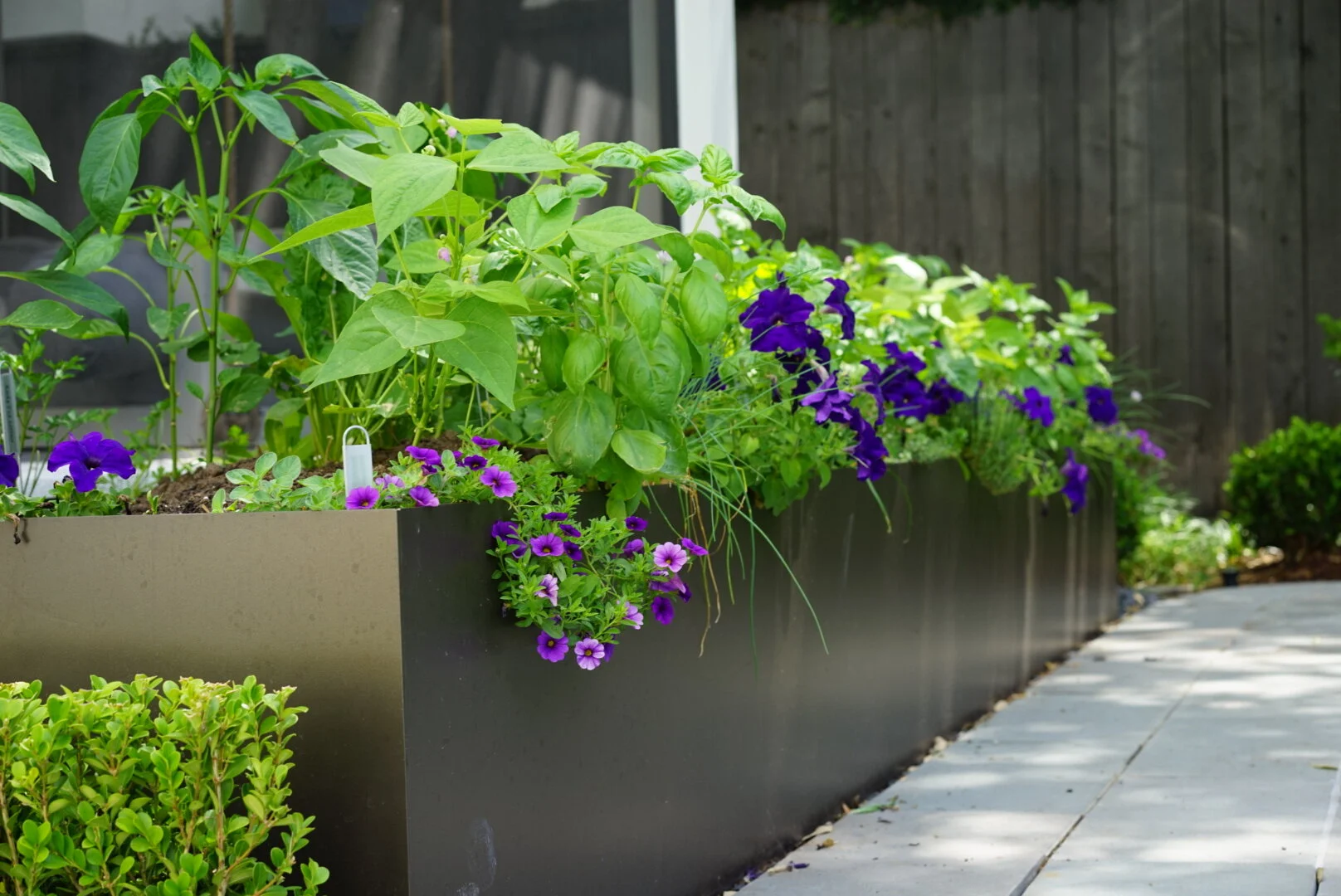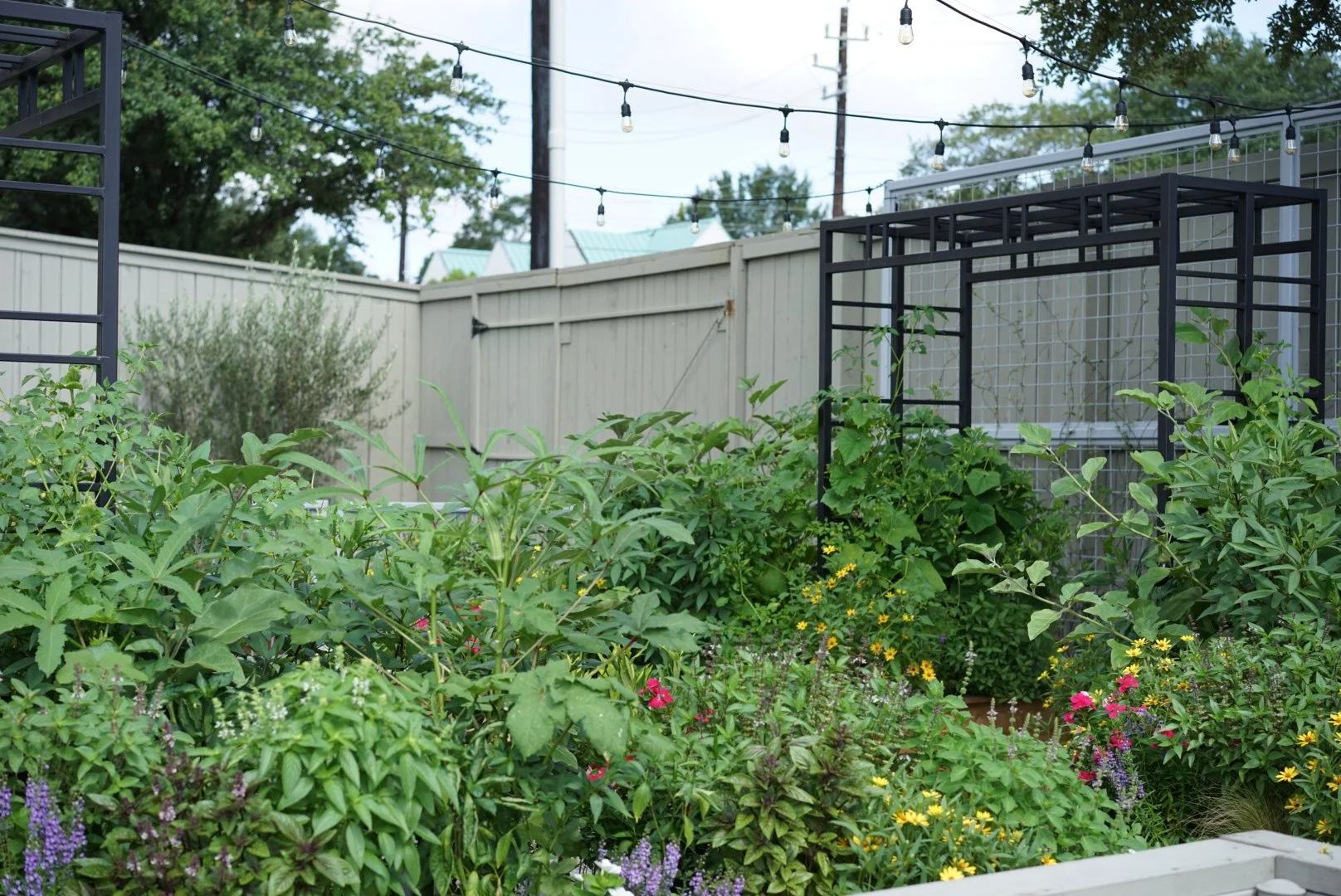Tips for Managing Pests in the Houston Garden
The weather is hot and humid, and while you might want to seek the air conditioning for refuge, garden pests are out and about in the garden.
While many bugs are a nuisance and can destroy your vegetable plants, some insects are beneficial to the garden and pollinate or munch on the harmful. Some examples of beneficial insects include ladybugs, mantises, bettle and fly species, lacewings, predatory insects such as wasps and spiders wait and attack prey and of course bees and butterflies help pollinate the garden.
For those other pests that attack the leaves or fruit in the garden we have put together our favorite tried and true organic methods for managing them.
Pruning
Pruning is a quick and easy way to remove leaves with holes or discoloration. With a clean pair of garden pruners remove the affected leaves and immediately throw them into the trash to avoid the pests moving to another plants in the garden.
When pruning keep in mind that you never want to remove more than 1/3 of the plants leaves. Begin pruning at the base of the plants as these are the oldest, most susceptible leaves.
Pruning also helps to send the plant’s energy to flower and fruit production rather than to more leaf production.
Compost
Organic, natural compost goes with the old saying, “the best defense is a good offense”.
First, add compost to your garden each time you replant for the next season. Compost will add nutrients back to the soil to encourage strong plant growth ad assist in withstanding an attack by pests.
Pests attack old and weak plants, just like in nature, so ensuring your plants are strong and healthy is the best way to prevent an attack.
If a plant in the garden is struggling to thrive a small mound of compost along the base of the plant might be the boost the plant needs to overcome the attack.
Insecticidal Soap
Insecticidal soap is a safe and gentle next step after pruning and compost. and easy first defense for a larger areas and works for aphids, beetles and caterpillars.
You can make your own by mixing two or three drops of dish soap with water into a spray bottle. Spray directly onto the affected leaves be sure to look underneath the leaves and inside the stems as aphids and others like to hide here.
If you prefer to purchase a premixed product we have a few options in our Amazon shop here and here.
Garlic Oil
Garlic Oil spray is the next level of attack after Insecticidal soap and works against soft bodied insects. Garlic oil is a natural defense that will protect your plants and even kill adult insects.
Neem Oil
If Insecticidal soap and garlic oil aren’t cutting it neem oil is the next line of defense. Neem will fight pests as well as fungus and bacteria. Like garlic oil, use sparingly and in the mornings or evenings as to not burn your plants.
BT Sprays
This stands for Bacillus thurigiensis and is a natural product and safe to use in the garden, the bacteria affects the insides of the caterpillars preventing them from eating. This is the strongest product we suggest using in your kitchen garden and only use sparingly. This products works quickly, but only against caterpillars such as tomato hornworms and cabbageworms.
Iron Phosphate Baits
Slugs and snails can be a big problem for gardeners in wet, humid areas and since they are nocturnal, difficult to manage during the day. For slugs and snails we suggest using a granular bait such as Sluggo.







